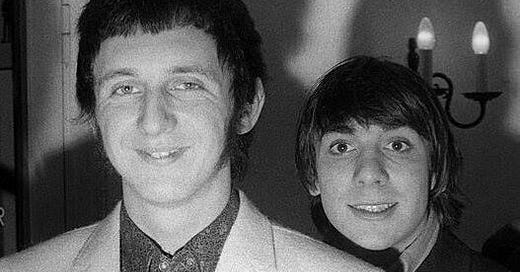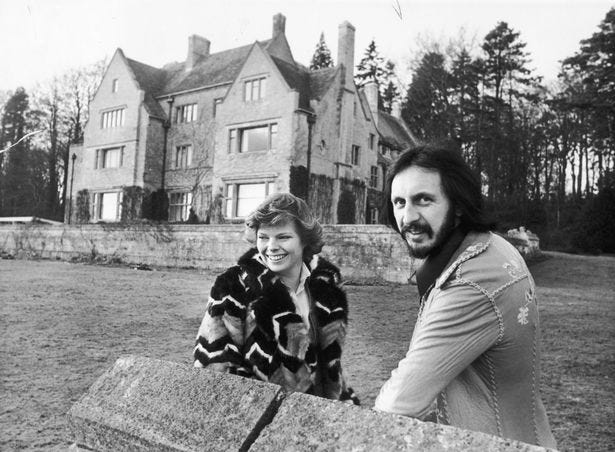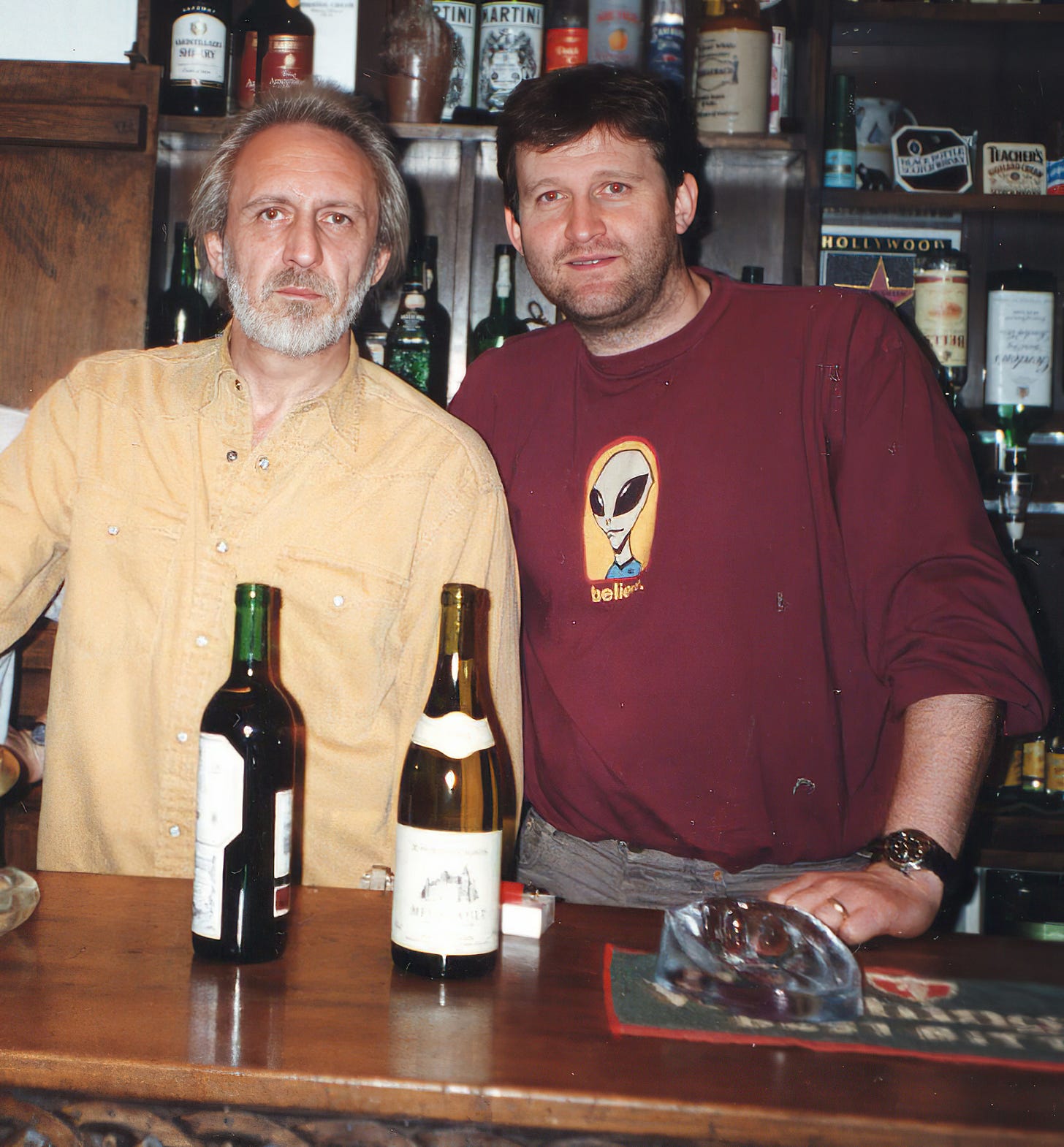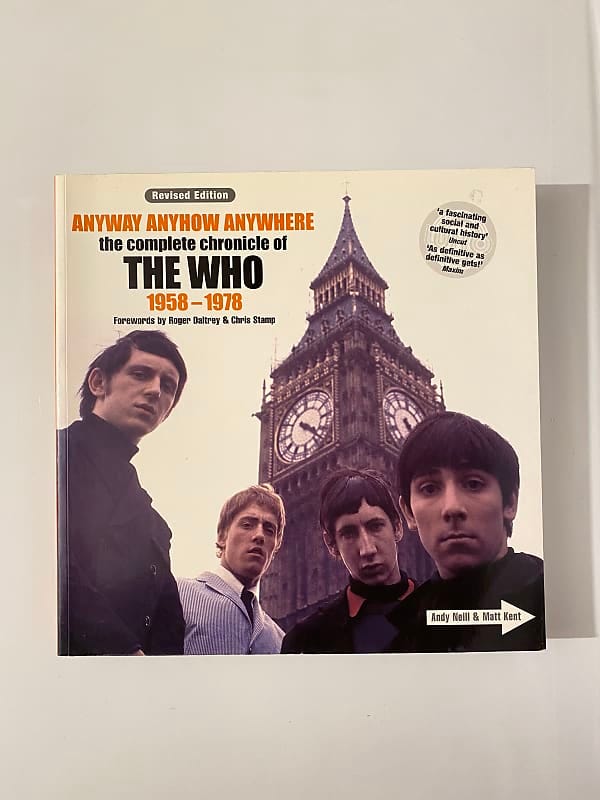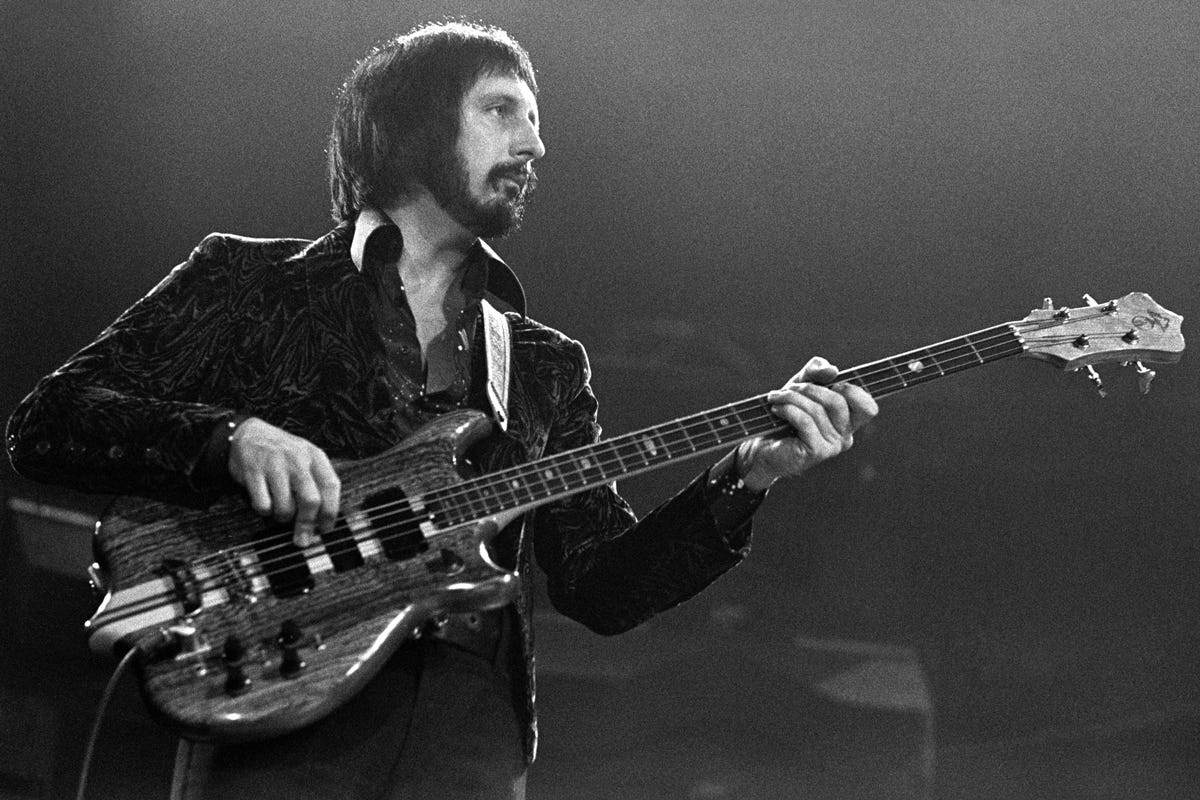"He was a poseur extraordinaire."
The Who's John Entwistle on Keith Moon, from my 1996 interview with The Ox, part 1.
“John, is there any chance we could get a glass of water?”
We are sitting in Quarwood, John Entwistle’s 20-room mansion in the Cotswolds. It’s the spring of 1996 and I am in the early stages of conducting what will turn out to be well over 100 interviews for my Keith Moon biography, having moved back to the UK for six months with then wife and infant for this purpose. Alongside me is Matt Kent, the editor of Naked Eye fanzine, which has served over recent years to corral not just The Who’s fans after a long absence (The Who last toured in 1989) but possibly, with a successful convention in The Who’s home turf of Shepherd’s Bush the previous year, that Entwistle attended, helped convince band members of the dedication and love for them that still exists in droves.
Either way, a Quadrophenia concert in Hyde Park has recently been announced for late June, given a lengthy and complicated billing to avoid the perception of a formal reunion, and Entwistle will shortly enough be back on stage with the surviving musicians – Pete Townshend and Roger Daltrey – alongside whom he made his name, helped change rock music, and earned his apparent fortune. Matt, meanwhile, a humble South Londoner like myself and of similar age, has already been super supportive of my endeavors, supplying all manner of contacts, and having arranged this visit to Entwistle’s home, he’s agreed to come along with me to help facilitate the process; he’s even offered to drive both ways.
Although it’s still officially spring, it’s an exceptionally hot day and Matt and myself are parched; whatever liquid we brought with us for the car journey we consumed on the way and British houses – especially rambling old mansions – are not equipped with air conditioning. (Nor would Matt’s car have been.) We are now 90 minutes in – a full C90 – to my interview with John, and over the course of this previous hour and a half we’ve watched John and his house-guest for the previous night, Who concert sound engineer Bobby Pridden, partake of some evident hair-of-the-dog after what they admitted to a late night that apparently involved some live music: both of them, John more enthusiastically, have started filtering their fresh coffee with Remy.
We aren’t in search of coffee, given that it’s lunchtime, let alone Remy, for the same reason. But it’s nonetheless instructive that Matt has to ask even for a glass of water. Normally, he tells me later, John’s girlfriend, Lisa Pritchett-Johnson, is on hand to play the role of host. But still, other than the feeling that we’re about to faint, we have no reason to complain. John has already been super forthcoming about his relationship with Keith Moon, talking freely about drug use, hotel smashing, and Moonie’s infamous 21st birthday party at the Holiday Inn in Flint, Michigan. Over the further 90 minutes, as the coffee gradually gives way to pure Remy and a second cassette fills up, Entwistle will offer additional – and highly disparaging – observations about Townshend as well, which I feel comfortable including here after all these years. They say that rock bands are like families, and John, despite all the trappings, took on the role of the spurned little sibling in this particular relationship on that particular day.
Certainly, Entwistle had not done badly out of The Who. Even by the standards of British country manors, even in a wealthy area like the Cotswolds, Quarwood was impressive. Who fans have surely seen it by now; as with Moonie at his pyramid-like Tara, Entwistle was never shy about publicizing his lifestyle. A video clip included in The Kids Are Alright, for the song “Success Story” from 1975’s The Who By Numbers, was shot here, and sure enough, the stairwells and landings were impeccably decorated with John’s infamously impressive collection of (mostly) bass guitars, some 200-or-so of them. Suits of armor filled various other prides of place and there was surely much else I have forgotten over the years, given that Entwistle was a famously obsessive antique collector.
Most impressive, however, was the vast bass rig he kept downstairs, in front of which we are conducting our interview. Comprised of an amp and speaker-stack taller than Entwistle himself, it’s the sort of set-up you’d only have put in a downstairs living room or eating area if you were a) in The Who, b) your nickname was The Ox, c) you’d been in the Guinness Book of Records as the loudest band ever, d) you loved playing music so much that you had released five solo albums and frequently took your own solo band out on money-losing tours, e) you were already virtually deaf in one ear, and f) you had a reputation as the greatest rock bassist in the world to uphold.
As a result of witnessing this heavy-duty hair-of-the-dog that hot summer’s day, then when John Entwistle died his most rock star of deaths six years later, aged 57, in a Las Vegas hotel room on the eve of a formal Who tour, with a stripper next to him and an inordinate amount of cocaine inside him, it seemed not so much inevitable – nobody knew at the time that John had severely blocked arteries that led to a massive coronary – as perhaps predictable. Roger Daltrey has found reason to celebrate the death as one that John would have been proud of, and even John’s own loving son Christopher appeared at relative ease with it in this interview. Nonetheless, and especially because his bass playing remained utterly unimpeachable throughout, all of us surely wish he could have stuck around and left the caricature rock star death to the semi-fictional members of Spinal Tap, whose bassist Derek Smalls was surely drawn in vast part on the character of The Ox.
But back to the interview. Like anyone involved in a band that, perhaps more than any other, built its reputation on legend mixed with myth, John had absorbed some of that Who mythology along the way and yet, of course, as someone who was there for almost all of the infamous incidents, he also had an incredibly vivid memory of what was presumed to have occurred.
Certain aspects of The Who’s legend will probably never be resolved, such as Keith Moon’s entry into the Who: the promoter at the Oldfield Tavern, where Keith made his infamous debut, later told me his own version of the events that start my interview with John, who himself hews very much to the standard script. But as I concluded in my book, the different memories were not necessarily mutually exclusive.
Here and there John told anecdotes where the dates or circumstance absolutely did not compute, and I’ve excluded those; I also appear to have eliminated most of my own questioning when typing up the transcript all those years back. As a result, what follows almost feels like a monologue.
Of course, I remain massively grateful for the encounter. And fortunately, I was able to return a favour to Matt for what at the time was his entirely selfless assistance. After the Moon biography was published, Steve Riggio, the younger of the two brothers who owned Barnes & Noble, announced he would be introducing me for my reading at the flagship store in Union Square, and offered to take me out for dinner beforehand. This was all much to my publishers’ surprise and delight, but it turned out to be for a simple reason: Steve was a massive Who fan, given to flying around the country to see them when opportunity provided. Matt Kent, meanwhile, in partnership with Who fan and researcher extraordinaire Andy Neil, was developing a concept for an enormous pictorial history of The Who, wisely confining it to the years that Keith Moon was on the planet. I introduced the two sides to each other, and the result was that Barnes & Noble published Matt and Andy’s thoroughly encyclopedic and utterly beautiful Anyway Anyhow Anywhere: The Complete Chronicle of The Who 1958-1978, one of the only (other?) books on The Who you really need to own.
The interview that follows is for paid subscribers. For those of you already on the plan: thank you, it means a lot. For those of you who are not, please consider the upgrade. Not only do you get exclusive historical posts such as this, access to the Crossed Channels podcast, and to all my archived Wordsmith posts, but you also keep me in coffee. More importantly, you keep me motivated to write. And with that, we turn back the hands of time, to that blazingly hot day in 1996 at Quarwood, with coffee, Remy, and The Ox.


